
Written in 2004 / 2019
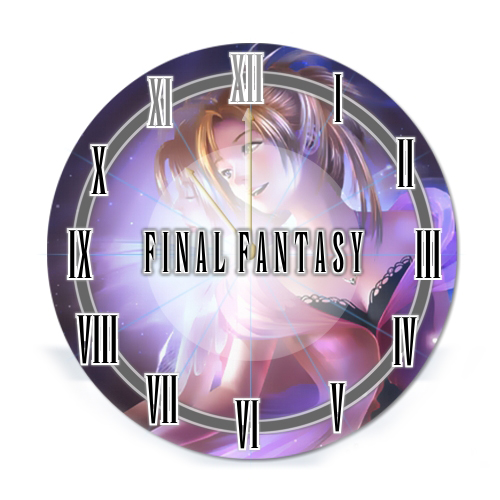 There is rarely any other game series that stands for the whole japanese RPG genre as Final Fantasy does. These games have defined the genre along with Dragon Quest. And even if there are other games that were more advanced at the time a Final Fantasy game was released, it was Final Fantasy that remained successful throughout the years.
There is rarely any other game series that stands for the whole japanese RPG genre as Final Fantasy does. These games have defined the genre along with Dragon Quest. And even if there are other games that were more advanced at the time a Final Fantasy game was released, it was Final Fantasy that remained successful throughout the years.
This series also paved the way for japanese RPGs to finally be widely popular in the west, with the release of Final Fantasy VII. Even though other Final Fantasies, including the great part VI, have been released in the past - it was Final Fantasy VII with its great videos and impressive 3D battles that helped the genre to break through and prepare the world for the so called "Golden Age".
The text for Final Fantasy I - X was written in 2004 for the then existant Final Fantasy Overview.
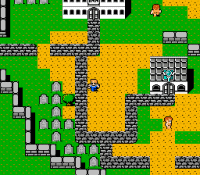 Final Fantasy (1987)
Final Fantasy (1987)
The game that started it all. Square was almost bankrupt when they decided to develop their last game - the "final fantasy" they were carrying in their minds. Well it turned out to be a heavy success! The world is veiled in darkness because the four crystals protecting the worlds have lost their power! What a catastrophe! And four nameless, characterless and speechless youths are going to save it.
You're creating your own characters the time you start a new game. You can choose four different classes, and you can name your characters freely. Quite unspectacular. The world is as flat as people thought it might be in middle ages.
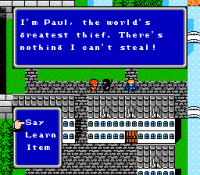 Final Fantasy II (1988)
Final Fantasy II (1988)
After Square got out of the crisis thanks to Final Fantasy, they developed a successor. Final Fantasy 2 has already something you cann call story and even tried to bring new aspects to the RPG genre. Four young people are chased by Knights of the evil Empire. After they have nearly been killed, they are saved by the queen and taught about a rebellion... They are getting a chance to avenge their parents' death.
FF2 offers a "hint-based" conversation system. Nothing special nowadays, but gamers back in the eighties seemed to love it. The original game was released only in Japan on the Famicom. But there was a re-release for Wonderswan Color (jap only) and PSOne in 2000 as well as mobile systems later on. Quite interesting, but still just for nostalgia-freaks.
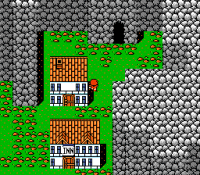 Final Fantasy III (1990)
Final Fantasy III (1990)
Again, four youths are sucked into some tragical events... but this time, it already comes along with some epos. The crystals are dying and the four heroes have been chosen by chance- It's not sure if they can deal with the task they have been imposed on. In the DS remake in 2005 and subsequent versions of that game, ther four characters have some personality and names.
FF3 has the last classic turn-based battle system. It already introduces a intelligent Job system and has some quite advanced menu. This game was the last classic Final Fantasy not to be released in the west. It took 15 years until this little gem was released outside of Japan.
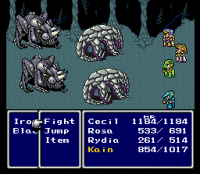 Final Fantasy IV (1991)
Final Fantasy IV (1991)
Final Fantasy IV is something in-between- on the one hand, it is still a classic Final Fantasy, but on the other hand, it introduces some features that made Final Fantasy to what it is now. The Kingdom of Baron is gaining powers from crystals shattered around the world. If the inhabitants of these crystals don't want to give away their power willingly, Baron doesn't hesitate to use violence... The leader of the Red Wings, Cecil starts to disobey that and is therefore suspended from his task. The King gives him another job instead - he has to deliver a package to the village of the summoners.
A very early version of ATB is introduced in FF4. You don't have any gauges, but if you wait for too long, Enemies will attack you. There is also a special action for every character available and there are summons! Quite neat for all of the FF freaks who want to discover the early beginnings. This game was release outside Japan as Final Fantasy II on the NES and Final Fantasy IV as part of Final Fantasy Chronicles. It was eventually released with new 3D visuals on the Nintendo DS.
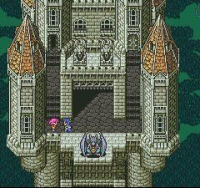 Final Fantasy V (1992)
Final Fantasy V (1992)
Final Fantasy V was the second installment of the Series on the Super NES. It introduced the "Active Time Battle"-System for the first time, but aside of this, it was some plain standard Final Fantasy - which is acutally nothing that disqualifies the game. Yet, later on the team around Mr.Sakaguchi, the games' producer, always called FF5 the game where they didn't have so much fun creating it. Quite a pity if you ask me, because the game is really good!
Crystals are mysteriously vanishing from the world, the wind stops and a meteor crashes down on earth, causing chaos and anarchy. Quite simple and with some primitive charme. The characters are not very deep and quite superficial - some traits are mentioned briefly, but nothing compared to later Final Fantasies. There's too much cliche around the heroes.
Now there's the time for FFV to settle some score. The initial form of ATB had some flaws - like you can't change between two characters in "ready" state - but it was the first time this characteristical battle system was presented. Aside of that, the Job system is something really great! You cannot "create" more individual characters in any other Final Fantasy.
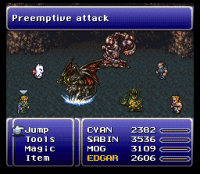 Final Fantasy VI (1994)
Final Fantasy VI (1994)
This is the last "real" Final Fantasy on a Nintendo console - and the goodbye is quite impressive. Even today, many Final Fantasy freaks call this installment the best game of the series. The grand Magitek empire of imperator Gestahl is on its way to world domination. With a gigantic army of Magitek machines, the empire conquers one country after the other. A group of rebels is forming to get rid of the dominance, and within this chaos there is the mysterious magician Terra who knows a long forgotten art.
Here, the true greatness of Final Fantasy took shape for the first time. The characters have quite some depth, they've got weaknesses and are unique personalities. This all shines through even though the Bitmap graphics can't show emotions so well - but they try with lots of facial expressions and character movement in cutscenes. The world is Dark and with a steam-punk setting at the beginning of the game. Compared to prior FFs, Final Fantasy VI has the most grown-up and dismal atmosphere.
The ATB system was slightly enhanced compared to part V, and a so-called Esper-system was integrated as a replacement for the Job-system. Every character now has his or her own special ability as well. Nice, but nothing really new. The presentation of this game is fantastic. Detailed Graphics and a quite opulent soundtrack ("Dancing Mad, Part IV") merge to give you the ultimate Final Fantasy on the SNES. Just the little, stiff spirtes are spoiling the great overall picture of this game.
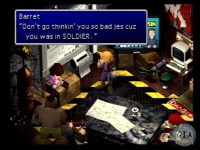 Final Fantasy VII (1997)
Final Fantasy VII (1997)
After Squaresoft split up with Nintendo, they were looking for the most promising hardware platform to produce their games on. Strangely enough they have chosen the "newcomer" Sony PlayStation instead of the quite renown Sega Saturn. Shin-Ra is the word of that time. This gigantic company virtually controls the whole world which consists of some smaller villages and one mega-metropolis called Midgar. The Planet's energy is being sucked out by Shinra and slowly resistance against them is starting to grow.
Like in its predecessor, character profiles were one major topic of FF7s development, yet the heroes show even more human nature and character weaknessess than in FF6. This is quite fascinating, but on the other hand, this makes some characters less likeable. Where steampunk reigned in part 6, cyberpunk does in 7. The little villages scattered around the world are still quite medieval with only minor technological advances in their infrastructure, nearly everything which could be called 'modern' is to be found in Midgar. Decadence, slums, poverty and wealth... quite some fascinating scenery!
Gameplay-wise, there's nothing new for FF7. At least not much. The Esper System has been exchanged with a materia-combination-system and as an addition, now a powerful (and upgradeable) Limit-Break is available after you took enough damage. The first of the "modern" Final Fantasies was a visual breakthrough. Even today, the detailed CG backgrounds and nice character models (at least in battles) look quite impressive. Just the sound is quite bad digitalized... at some points, even the SNES synthie of FF6 sounds better. My personal music tip for you is "Great Warrior".
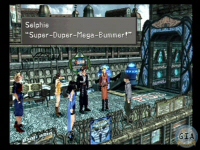 Final Fantasy VIII (1999)
Final Fantasy VIII (1999)
Until today, Final Fantasy 8 splits fans into two groups: One of them just loves the game, the other ones think of it as a boring game with a trashy story. Square Enix themselves are obviously of the latter opinion, since it's left out of so many rereleases in the past. Between Galbadia and Dollet, a war is about to start. The orphan Squall Leonhart receives his draft papers after he finished his training on a military school.
Like in FF7, the characters here are credible as well, they seem like real humans. A big world with various locations await you - sometimes, you play within the dreams of the poeple.
This time, the summons are called "Guardian Forces". They're advanced in some way, leading the way to FFX. You can equip them with abilities and level them up using linked magic. Anonther unique feature of FF8 is that the strenght of the fiends is linked with the strength of your main character. On first sight, Final Fantasy 8 seems to be nothing but a optically tuned FF7. Yet the graphics are more detailed and the music now uses a much better synthesizer than in FF7. The melodies are just great, Uematsu really did his best. My favorite tune: "The Extreme".
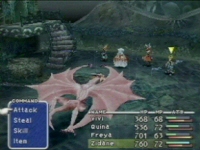 Final Fantasy IX (2000)
Final Fantasy IX (2000)
Square itself calls this game "A goodbye present for the old PSone". And indeed, the game looks like a present to all the Final Fantasy freaks who where demanding a "classic" FF with airships, black mages and medieval atmosphere during all the years. Strange things are going on in Alexandria Kingdom. Queen Brane has changed a lot since the death of her husband. She breeds magical puppets and starts wars with neighbouring kingdoms...
Super-deformed, chilidish and with some comic charme, the characters of Final Fantasy IX are not everyone's favorites. They also are quite plain compared to former Final Fantasies. Despite all of that, these are the most "classic" Final Fantasy characters that appeared in a long time. The three kingdoms are quite decent designed with a own architecture and many details missing in other FFs.
The gameplay is a bit flawed. Still quite good compared to many other RPGs, but this time the gameplay misses the perfectionism Square showed on most of its predecessors. The trance system hasn't been worked out well, often you get stuck in trance where you just don't need it. Additionally, the ATB ist just too slow here. There is too much time needed between the input of a command and its execution. As for visuals and music, you obviously can't get out more of the old PSOne. Detailed characters in every situation, very "beautiful" fiends and hundreds of little details. The Synthie now seems to be on one level with real CD sound, and the songs itself couldn't be much better, I suppose. My personal tip: "You are not alone".
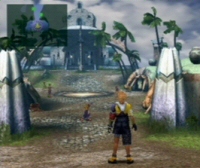 Final Fantasy X (2001)
Final Fantasy X (2001)
The most recent "real" Final Fantasy that has been created by the original creators. After that, Mr Sakaguchi left Square Enix, also Mr Uematsu slowly reduced his commitment to Final Fantasy and left soon thereafter. After a horrific war thousand years ago, the world of Spira has been struck by a mysterious being called [Sin] over and over again as a punishment for their sins. It's the job of summoners to defeat [Sin] so that it won't cause pain and destruction at least for a limited period of time.
In contrary to part 9, this time Square has done some in-depth psychology before creating the characters, thus they are very much like real people with all their strenghts and weaknesses. You can really identify yourself with one or more characters and create some kind of "relationship" with them. Spira is worked out quite decent and awaits you with various locations which are presented in some impressive way. Yet the world seems to be a bit too homogeneous, meaning there is not much difference between cultures or countries... only the Al Bhed are some different race, but with the same goals and feeling as the rest of the world.
In the battles, a new system called "CTB" (Command Turn Based) was introduced. It's a nice change to the previous stressful ATB system; you can fight much more strategical here. The Sphere Board is another neat invention, it lets you level up in a different way. Quite interesting and innovative. Audiovisual understatement was kind of a trademark for former Final Fantasies. But with Part X, Square really showed what they're capable of. Mr Uematsu has created an absolutely great Soundtrack, and the optics are not worse either. FFX is still an eye-candy, even years after its release. My special soundtrack tip: "Vision of Zanakard".
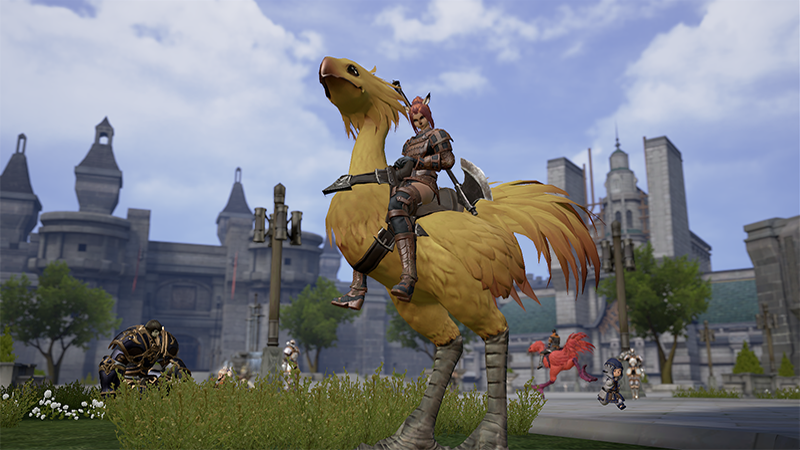 Final Fantasy XI (2002)
Final Fantasy XI (2002)
This was the first Final Fantasy to be a massive multiplayer online RPG. The games' initial release was 2002, but the servers for the PlayStation 2 went on running until 2016, the PC servers are still available! This game was a turning point in more than one ways for Square Enix. It was the first game without Hironobu Sakaguchi, most of the Soundtrack was composed by other people than Nobuo Uematsu and well - it was an online RPG.
The story is set in the world called Vana'diel. It's an immersive an big world. Square Enix still focuses on story a lot more than in other RPGs and released story parts ever so often. The last chapter, "Rhapsodies of Vana'diel", was released in 2015, about a year before the servers were shut down.
As a MMORPG, the game was the first in the series to have action oriented battles instead of turn based ones. People could meet up to form parties of up to six players and the game offers a job system not unlike other Final Fantasy games. As mentioned, the soundtrack has been widely composed by Kumi Tanioka with the help of Nobuo Uematsu. My recommendation: "Ronfaure".
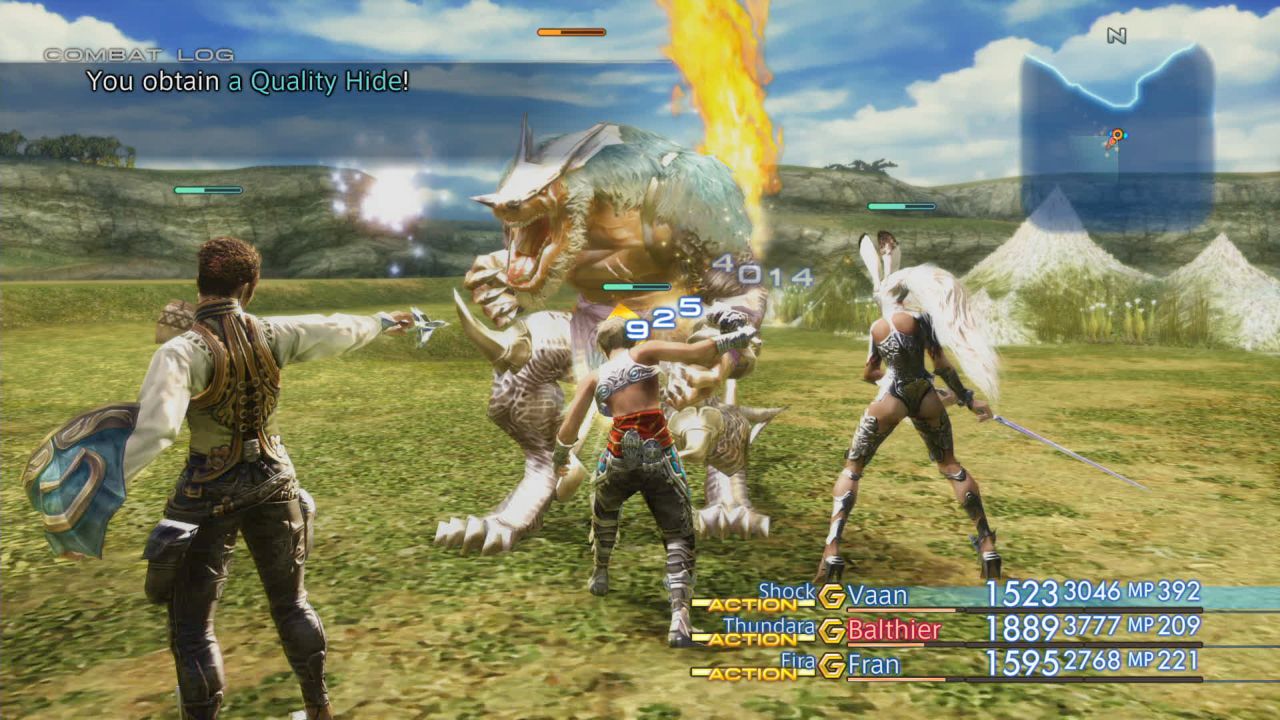 Final Fantasy XII (2006)
Final Fantasy XII (2006)
Back in 1999, Squaresoft announced three Final Fantasy games at once. Final Fantasy X, XI and XII. Yet, release of part XII should take another seven years until it was released on the PlayStation 2 console. It was part of a goodbye to the old console, as the new generation of powerful machines was already released. Still, this game was a huge success for Square Enix, even if it changed so many things of the Final Fantasy formula.
This game takes part in the world of Ivalice (The same wordl, btw, as Final Fantasy Tactics) where there's a long war going on between two countries. The princess of a country that's been dragged into the war forms a resistance movement and tries to reconquer her land. The story this time is not so much focused on its characters anymore. A much bigger part of the game plays the sheer size of Ivalice, an impressive and beautiful world with many distinct landscapes.
The game takes lots of inspiration from MMORPGs, gameplay-wise. The battle system is semi automatic this time, with the leading character being controlled by the players, only being able to issue commands to the party members. The soundtrack has been composed by Hitoshi Sakimoto and is a twist from memorable melodies (as Mr Uematsu created) towards a more atmospherical, mysterious music. It fits this game pretty well. I don't have a particular favirote tune in this game - basically, I can recommend the whole soundtrack, it's good for easy listening in the background.
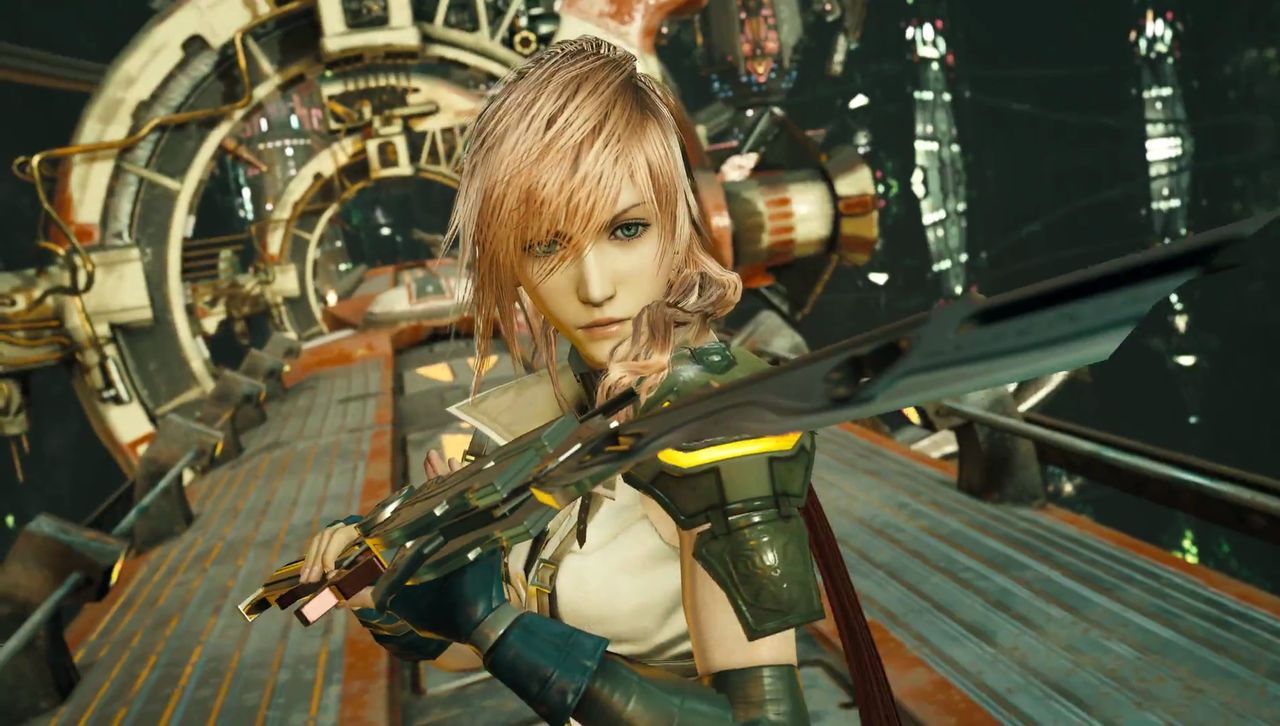 Final Fantasy XIII (2009)
Final Fantasy XIII (2009)
What a huge epos. Initially released in 2009, the saga of Final Fantasy XIII spans over three games (Final Fantasy XIII-2 and -3), each with different gameplay. It's a game in a stylish world with stylish people fighting stylish monsters, designed by Tetsuya Nomura. This game is also part of the Fabula Nova Crystallis series which extends up until Final Fantasy XV.
The story plays in Cocoon, a floating world. The government of that world kills all people who are said to have gotten into contact with the world below, Pulse. The heroine, Lightning, tries to save her sister who is suspected of having had contact with Pulse. So Lightning sets out on her journey and meets lots of characters and comes into conflict with the government of Cocoon, also being accused of contact with pulse.
The first part of Final Fantasy XIII was a move back to the good old Active Battle System. The story takes some time to get off, and the journey from place to place is being done in very long and linear areas where fights can take up some time. Especially in the first few hours of the game, there are not many towns to visit. The soundtrack was done by Masahi Hamauzu. Reception was mixed, mny people critizised FF13 for lacking heart and motivation to go on - others said that you just had to wait until you reach the open world later on.
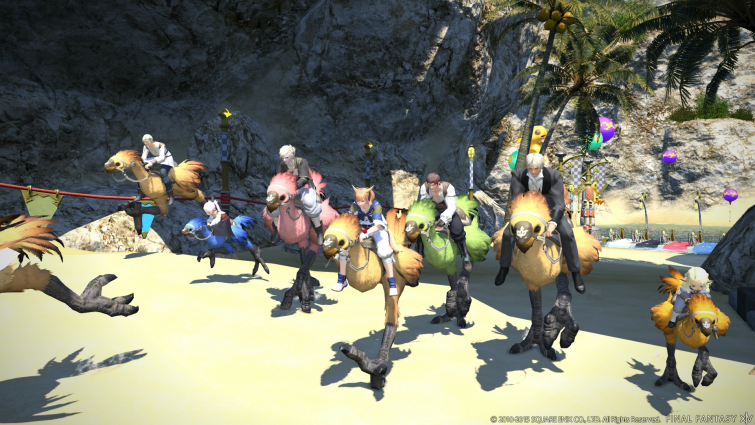 Final Fantasy XIV (2013)
Final Fantasy XIV (2013)
Another MMORPG that was the spiritual successor to Final Fantasy XI. Initially released for Windows and the PS3, the game was later on ported to the PS4 and MacOS. Basically, this game was already released in 2010 (in beta state), but was drawn back and released later on.
The game again plays in a new world and is not related to Vana'Diel of Final Fantasy XI. Again, this game is quite story driven for a MMO with new story pieces being released by Square Enix as the game is being played online.
A part of the games' soundtrack was composed by Nobuo Uematsu, but most of the score was composed by Masayoshi Soken, who worked on several Mario sports games and Dawn of Mana before. Final Fantasy XIV is a well received MMORPG where many players thought it was doomed after its clumsy release in 2010.
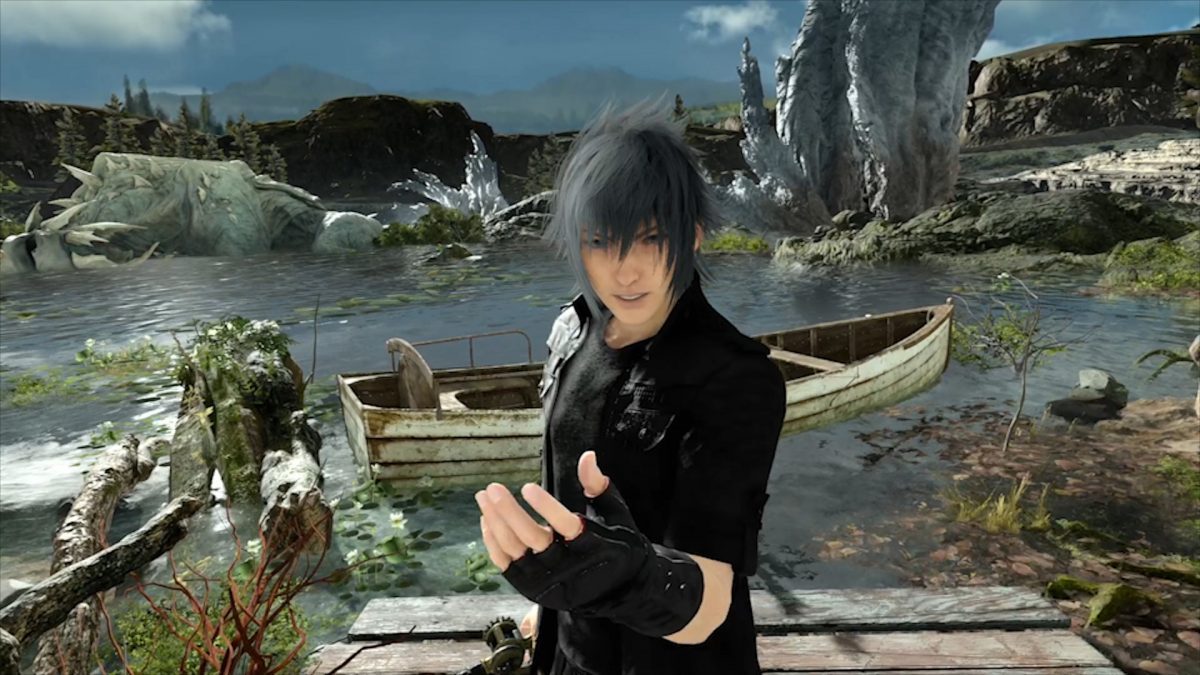 Final Fantasy XV (2016)
Final Fantasy XV (2016)
The latest iteration of the classic, single player Final Fantasy games. But whait - what is classic about this game anymore? Final Fantasy XV is an action RPG. It wasn't even initially designed to be a core Final Fantasy game, the name designated for this game was "Final Fantasy Versus XIII" and it is also part of the Fabula Nova Crystallis series. It was promoted with a pretty interesting and special demo in 2015 and eventually released a year after. In addition to Final Fantasy XV, there was also a movie released and an anime series.
Part XV is set in a world where every part is controlled by a big empire that seeks out total power by acquiring the magical crystals held by the last remaining independent country (Final Fantasy IV, anyone?). Players control the main protagonist who happens to be prince of the kingdom that had his crystal stolen. The game is laid out like a road movie with lots of miles of travel in a (beautifully designed) car.
The main composer of the game was Yoko Shimomura - her first work that I heard was Legend of Mana, a quite nice soundtrack. Additional bits to the story have been released in 2017 and 2018, but at the end of that year, Square Enix announced that not all of the initially planned content will be available. Internal structural changes at Square Enix stopped further development.
Back when this report was initially created, there was also an emphasis on Final Fantasy "fringe" games. Back in 2004, there were a few, but nowadays, there is a myriad of Final Fantasy games and Final Fantasy inspired games that are not part of the main game line. These games have been left out in this report.